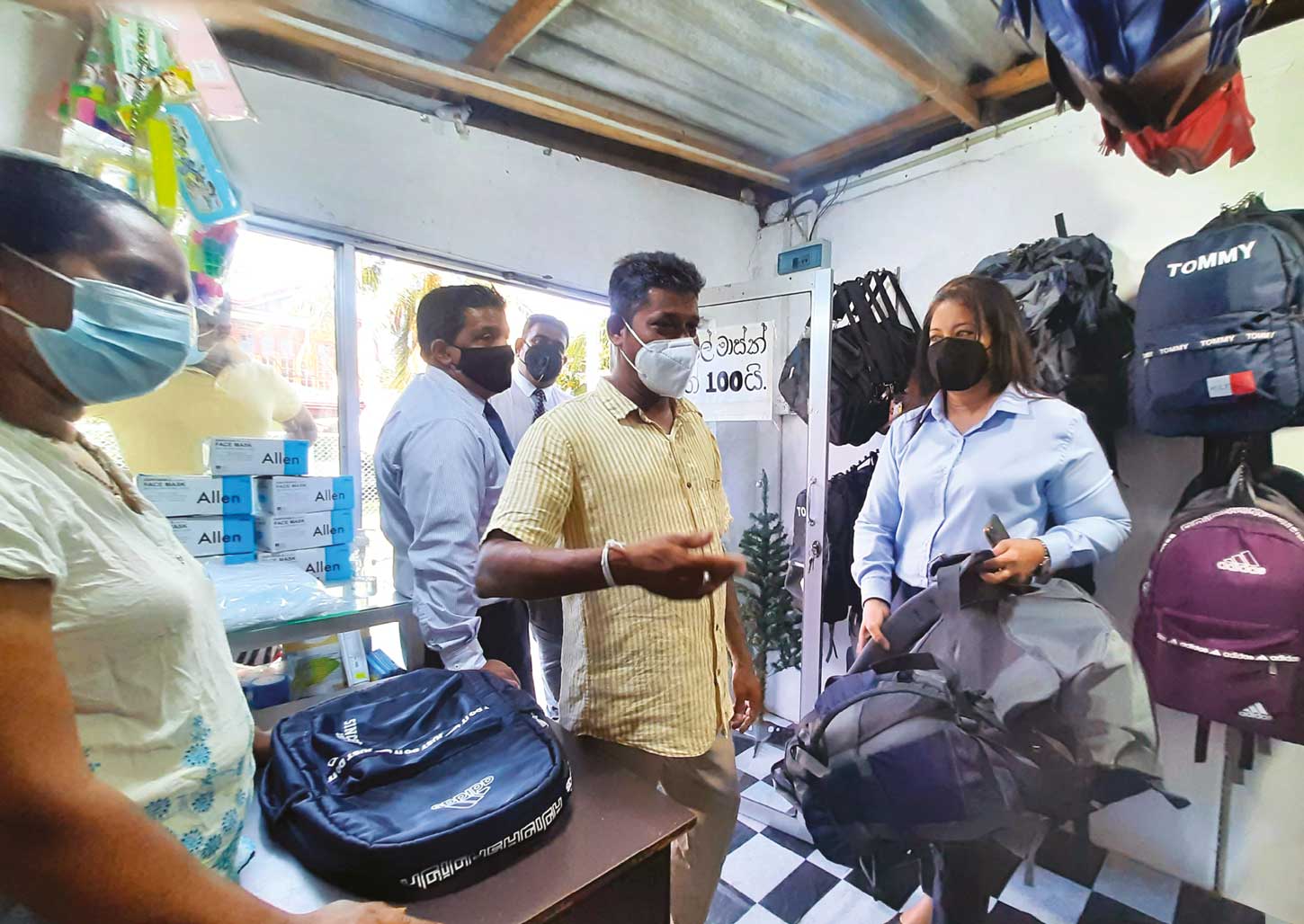HATTON NATIONAL BANK
Q: What is the role of corporates in making Sri Lanka green?
A: Going green is the biggest impact businesses can make on a sustainable footprint. And Hatton National Bank (HNB) has embedded sustainability in its business model.
A sustainability led business approach has seen us drive growth in the rural economy by addressing key barriers in the MSME sector including access to finance and markets, and technical knowledge for financial inclusion, while mitigating climate change by financing alternate energy generation activities including waste-to-energy and solar power projects.

Deputy General Manager/
Chief Human Resource Officer/
Chief Transformation Officer
Q: What does ‘corporate sustainability’ mean to you?
A: As a champion of SME and microfinance banking, HNB takes pride in being the pioneering financial institution to bank ‘unbanked and underbanked’ rural entrepreneurs through our flagship ‘Gami Pubuduwa village awakening.’ Our goal is to be carbon neutral, and accredited for climate action based banking and financing activities, in the near future.
This year, HNB allocated a further Rs. 10 million to assist entrepreneurs affected by the ongoing economic crisis as a part of its flagship ‘Oba Venuwen Api’ (Phase 2) to rebuild and revive the economy. Launched at the onset of the COVID-19 pandemic in 2020, this will offer a select 100 entrepreneurs across the island Rs. 100,000 each to be used for capital requirements.
Under Phase 1 in 2021, 1,200 entrepreneurs received a Rs. 100,000 grant each, totalling Rs. 20 million in funding. An enthusiastic promoter, HNB is able to link project investors to concessionary lines of funding locally and globally to ensure capital expenditure is made available at the lowest interest rates.
Practising responsible Earth citizenship as a corporate, HNB has invested in energy efficient equipment across its customer centres since inception, ensuring that 95 of the 256 centres solar powered reduced their dependency on the national grid by 19.7 percent in 2021.
The bank has a strong environmental and social management system, which assesses risks for lending, and advises clients on mitigating their environmental risks and adverse impacts. HNB pioneered the launch of the Sustainable Banking Initiative in 2015 through the Sri Lanka Banks’ Association (SLBA) to promote responsible banking practices, which is now accepted by the Central Bank of Sri Lanka.
While HNB has implemented measures to focus on reducing its carbon footprint, the bank’s renewable energy portfolio including funding provided to solar, mini hydro and wind power projects, exceeds Rs. 7.3 billion.
Q: How do you merge sustainability-related indicators into key performance indicators (KPIs)?
A: Monitoring and reporting on performance against sustainability KPIs are an important part of managing the bank’s environmental footprint, achieved systematically through the CEO’s sustainability dashboard.
HNB’s Sustainability Management Framework (SMF) integrates its performance with nonfinancial indicators to develop a hybrid decision-making strategy and assesses business impacts based on the UK’s accountability principles and Global Reporting Initiative (GRI) standards.
The bank works to targets established through the United Nations’ Sustainable Development Goals (SDGs) as an example of localised sustainability in action. HNB has introduced and promoted environmental, social and governance (ESG) compliant investment opportunities.
As part of HNB’s ‘Climate Smart Initiatives,’ each employee takes the ‘HNB Green Pledge’ to integrate environmentally-friendly practices into their daily activities at work and home.
Q: What recent initiatives have been taken by you to protect the natural environment?
A: HNB has a Sustainability Foundation to drive corporate citizenship through our strategic pillars: education, healthcare, community, economic empowerment and the environment.
Marking a milestone in its sustainability journey, HNB was awarded the ISO 14064 certification by the Sri Lanka Climate Fund, recognising the country’s leading private bank’s commitment to quantify, report and reduce greenhouse gas (GHG) emissions.
Strengthening its commitment to invest in sustainable growth, HNB completed its fourth year of restoring and managing a 2.5 hectare block of degraded rainforest land at the Kanneliya Forest Reserve.
The bank has been an active contributor to the restoration project, which ensures the establishment of on-site nurseries, fertilising plants, soil conservation, improving plant protection methods and ensuring they are watered in the dry season.
Team HNB cyclists also joined ‘Bankers on Bicycles’ for a friendly ride to promote a sustainable lifestyle, health and fitness among our staff, and unite for common causes.
As a bank with 132 years of history and a heritage of serving Sri Lankans from all walks of life, HNB is fully committed to combat climate change through focussed and holistic efforts to promote cleaner green energy.





